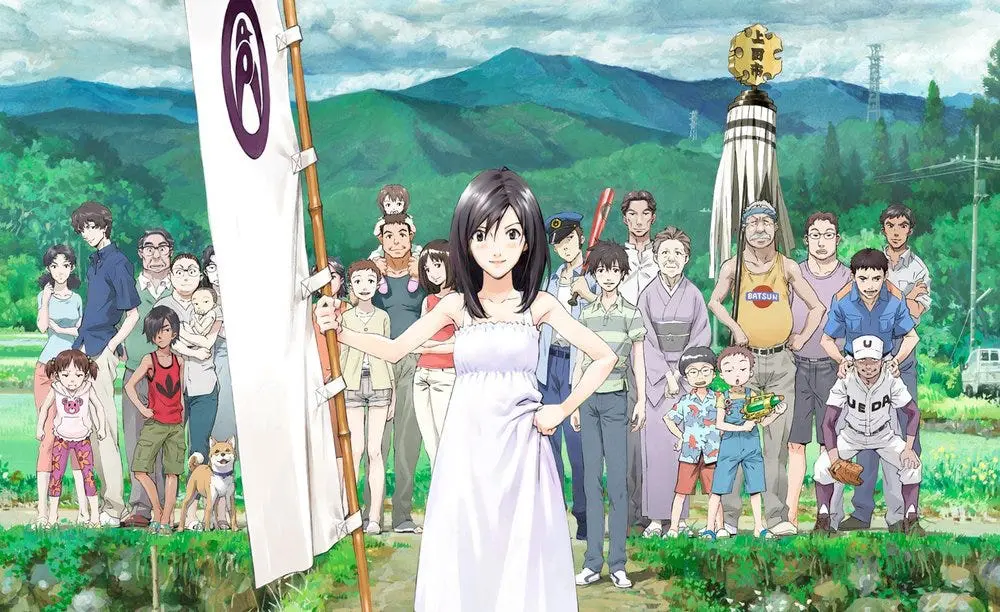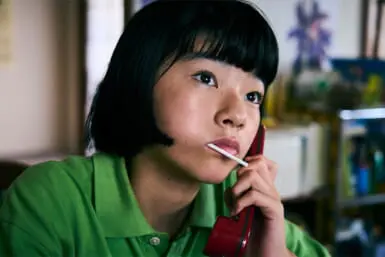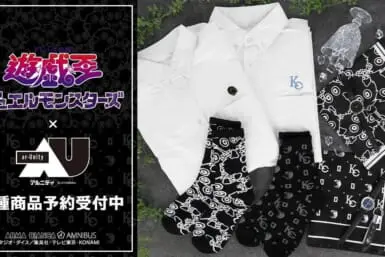Summer in Japan can be a beautiful thing, but it can also be scorching and sweaty. As with all great things, Japanese summers contain multitudes, which is one of many reasons why the season makes such a rich topic for plots of movies and television shows. If you would like to explore all the facets of summer within the air-conditioned comforts of your own house, here are our summer-themed streaming recommendations.
Summer Wars (2009)
Available on: Hulu, Prime Video (with additional subscription)
With a title like Summer Wars, there was no way that this 2009 anime movie by Mamoru Hosoda wouldn’t make the list. While also being another fascinating insight into the director’s unique style of portraying women, Summer Wars puts less emphasis on female characters and more on the spirit of adventure that dwells in the heart of summer. Kicking off at the height of the hottest season of the year, the movie follows high-school students Kenji and Natsuki as they fight a sentient and malevolent computer virus during Natsuki’s big family celebration.
The cyber-psychedelic aspect of the movie aside, Summer Wars is a kind of love letter from Hosoda to how summer feels when you’re still a kid. It’s a time spent surrounded by family when anything seems possible, and you feel like you can take on the world. Plus, the “fighting artificial intelligence” plot has helped the movie age surprisingly well.
Water Boys (2003, 2004, 2005)
Available on: Prime Video (with additional subscription)
These three Fuji TV follow-ups to the 2001 Shinobu Yaguchi movie of the same name (also spelled Waterboys) stay true to the source with stories about groups of high-school boys learning synchronized swimming, all told in the most madcap and zany ways possible. Yaguchi has a very specific and enjoyable style, which is emulated faithfully in the small-screen versions of a tale about friendships, romance and opening yourself to new experiences.
Still Walking (2008)
Available on: U-Next (with a fee), Prime Video (with additional subscription)
Japanese summer also has a more somber side to it in the form of the Obon festival. Held on the 15th day of the seventh lunar month, which falls somewhere between mid-August and early September, Obon is when Japanese people welcome the spirits of their loved ones as they briefly return to Earth. While celebrated with music and dancing, it’s a time for reflection on mortality.
Hirokazu Koreeda’s 2008 movie Still Walking taps into that side of Japanese summer with the story of the Yokoyama family as they observe the anniversary of their eldest son’s death. While the ultimate message of the movie is a simple one — we live on in the memories of our loved ones and the lessons we impart to them — it is told in an emotionally raw way that cuts to the bone and makes you thankful for the experience.
Summer Heartbreak (2023)
Available on: Prime Video (with additional subscription)
Also known as Cinderellas of Midsummer or by its original title Manatsu no Cinderella, Summer Heartbreak rises beyond the low expectations of its title to become something more. Rather than another run-of-the-mill romance series, this Fuji TV show uses the common summer-themed locale of the beach as a background to tell more complex stories with young adult characters.
Exploring such themes as finding common ground between people from different socio-economic backgrounds, addiction and a bittersweet love for one’s hometown, Summer Heartbreak can get surprisingly deep at times. However, it always remains optimistic and joyous without feeling disingenuous. Never sacrificing the essence of what summer represents, it skillfully weaves drama into its narrative and instantly earns a spot on this list.
Drowning Love (2016)
Available on: Netflix, Prime Video, U-Next
Yuki Yamato’s Drowning Love starts like your typical summer love flick. There’s a girl in a seaside town she doesn’t want to be in and a boy from a different world who takes her breath away. All the cliché pieces are there, but they refuse to fall into their typical place.
The two young protagonists, played by Nana Komatsu and Masaki Suda, definitely start out in love, but the movie is quick to remind us that love isn’t always a beautiful thing. It can be possessive and ugly and it can make people do terrible things. As time passes, the plot becomes darker and darker, culminating in some truly shocking twists and turns that will make you instantly understand why the Japanese title translates to “drowning knife.”









